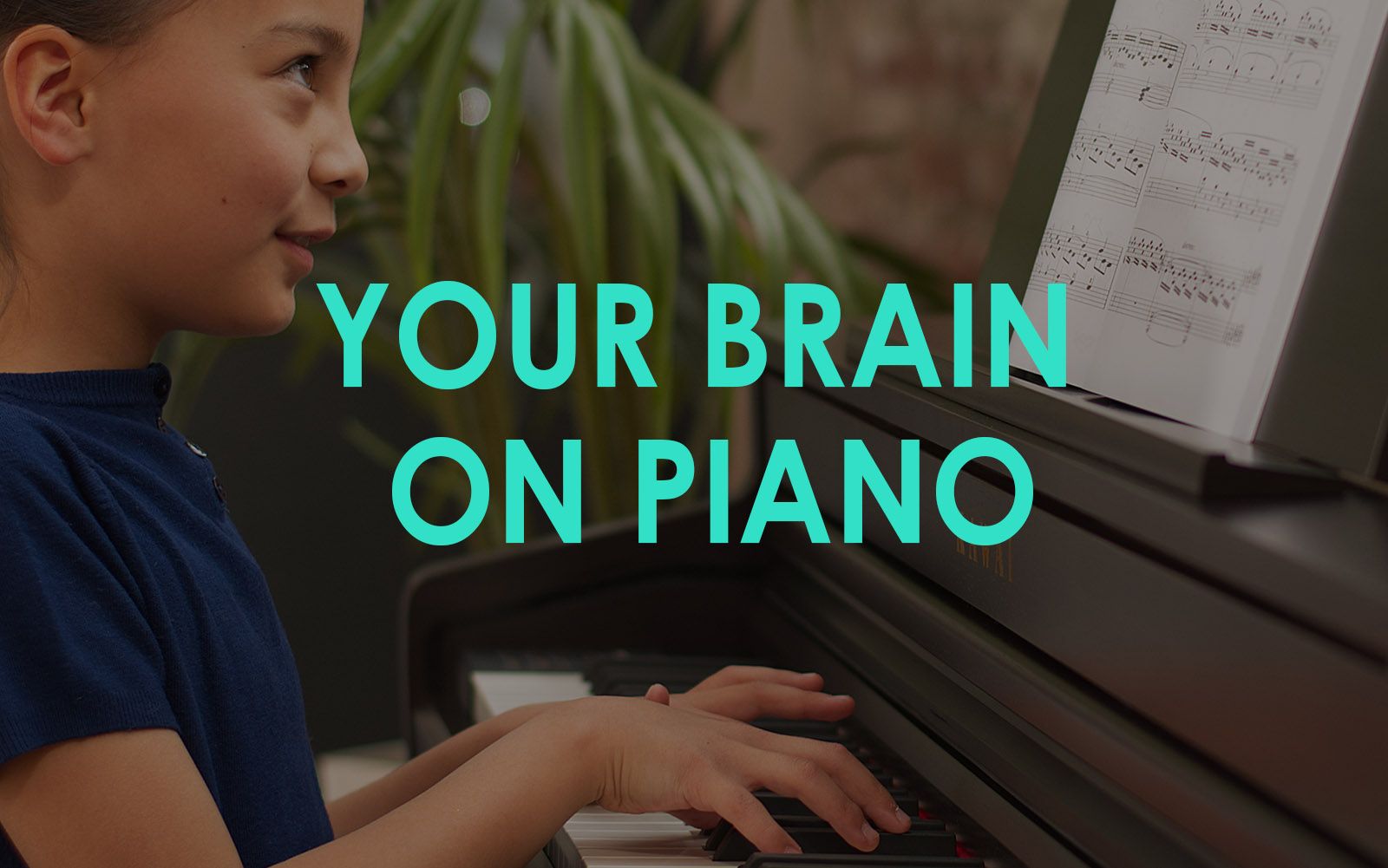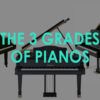
Your Brain on Piano
It’s probably reasonable to conclude that the majority of people who end up learning to play the piano in life never regret it. hey can end up experiencing a myriad of personal benefits from doing so, many of which extend beyond the scope of the pleasure of music itself. Among the many benefits, learning to play the piano can improve hand-eye coordination, provide the self-discipline and personal satisfaction of acquiring a skill, and (eventually) spread the joy of music to those around. Of significant interest is the growing scientific evidence showing the high correlation between practicing a classical musical instrument like the piano (particularly in children during the years prior to age 7) and enhanced brain development and cognitive function. The body of research seems to further deduce that this effect tends to translate over to an increase in the general capacity to develop skills in all areas of life, including greater scholastic aptitude shown by children and students.
With respect to brain physiology, the effects (based on the capacity for change called brain plasticity) are remarkable. There seems to be an overall reinforcement of the brain’s structure and wiring; the neural networks reveal an increase in robustness and complexity. Specific changes include a higher density of interconnectivity between neurons (an increasingly accepted indicator of intelligence; see Einstein below), greater left/right asymmetry in the planum temporal lobe (associated with a higher capacity for auditory processing), and an increase in the size of the corpus callosum. The corpus callosum is an area of neural fibers that connect the left and right hemispheres of the brain, and its growth suggests of a greater capacity for synchronized processing between them. As brain development and its reactive/adaptive sensitivity to stimuli are most prominent in the early childhood years, these changes tend to be more profound in individuals that took up musical instruments prior to age seven.
The empirical evidence is just as compelling. Higher mathematical understanding and performance, indicative of an increase in spatial-temporal ability, are associated with a musical background in early childhood, as is intelligence (including I.Q.) which is several standard deviations above average. Early musical training and musical training in general have also been associated with a greater ability for mental imagery, an indication of a larger capacity for abstract thinking, creativity, and problem-solving. Of interesting note is that scientist Albert Einstein, considered one of the greatest geniuses in history, was a lifelong lover and practitioner of music. Music was a constant in his life from the time of his birth; Einstein’s mother was an avid pianist and he learned to play and compose music on the piano as a young child and continued on with the violin well into adulthood. Einstein even played music as a way to help him solve some of his physics problems.
This is all significant because an autopsy of Einstein’s brain showed a higher than average density of connections between neurons even though the number of neurons was average. This discovery coincides with findings on early childhood exposure to music and enhanced brain physiology. Likewise, many experts conclude that his lifelong relationship to music seems to have played a significant role in his intellectual development and capacity for great insight.
None of this may be all that surprising to parents who take an active role in their child’s development, as well as teachers and those involved in music and music instruction who see the impact of music education on children firsthand. It does, however, provide the adult ample supportive reasoning to assuage the resistant child who finds the effort and mundaneness of lessons and practice sessions to be drudgery and torture. It can also do the same for the adult who feels the same way.
To you and your child’s success!
Categories
- Buyer Resources (24)
- Uncategorized (1)
Popular Posts
-
 December 29, 2021
December 29, 2021Should I Buy a Grand or an Upright Piano?
-
 September 29, 2022
September 29, 2022What levels of piano quality are there?
-
 February 5, 2024
February 5, 2024Timeless Excellence: The Blüthner Legacy

